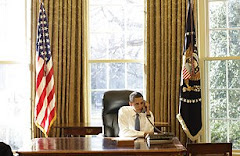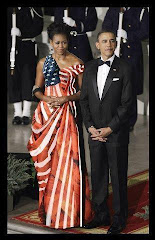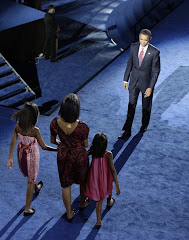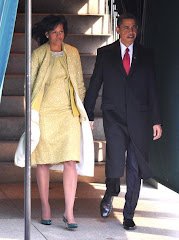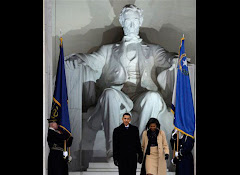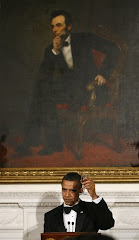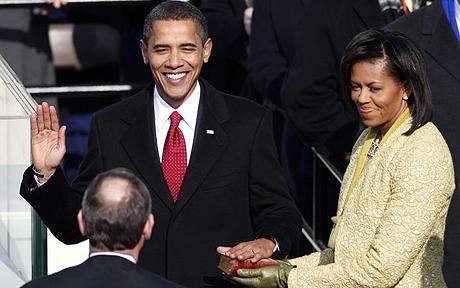
I Was Right ! Bush Wants Israel To Bomb Iran !
Just yesterday B4B reported about the 'secret' congressional meeting this past March regarding the Imminent Martial Law Plan (see post below) which would mean that Bush would stay in office during the martial law period (basically canceling the election). Yesterday we stated that Bush may coax Israel to attack Iran (wouldn't look credible if U.S. did another illegal preemptive attack....plus all of our troops are kind of busy right now), creating major unrest in the region, giving Bush 'justification' for the desired martial law declaration. Well, here it is, just one day later as reported in the Times of United Kingdom:
President George W Bush backs Israeli plan for strike on Iran
Times/UK
President George W Bush has told the Israeli government that he may be prepared to approve a future military strike on Iranian nuclear facilities if negotiations with Tehran break down, according to a senior Pentagon official.
Despite the opposition of his own generals and widespread scepticism that America is ready to risk the military, political and economic consequences of an airborne strike on Iran, the president has given an “amber light” to an Israeli plan to attack Iran’s main nuclear sites with long-range bombing sorties, the official told The Sunday Times.
“Amber means get on with your preparations, stand by for immediate attack and tell us when you’re ready,” the official said. But the Israelis have also been told that they can expect no help from American forces and will not be able to use US military bases in Iraq for logistical support.
Nor is it certain that Bush’s amber light would ever turn to green without irrefutable evidence of lethal Iranian hostility. Tehran’s test launches of medium-range ballistic missiles last week were seen in Washington as provocative and poorly judged, but both the Pentagon and the CIA concluded that they did not represent an immediate threat of attack against Israeli or US targets.
“It’s really all down to the Israelis,” the Pentagon official added. “This administration will not attack Iran. This has already been decided. But the president is really preoccupied with the nuclear threat against Israel and I know he doesn’t believe that anything but force will deter Iran.”
The official added that Israel had not so far presented Bush with a convincing military proposal. “If there is no solid plan, the amber will never turn to green,” he said.
There was also resistance inside the Pentagon from officers concerned about Iranian retaliation. “The uniform people are opposed to the attack plans, mainly because they think it will endanger our soldiers in Iraq and Afghanistan,” the source said.
Complicating the calculations in both Washington and Tel Aviv is the prospect of an incoming Democratic president who has already made it clear that he prefers negotiation to the use of force.
Senator Barack Obama’s previous opposition to the war in Iraq, and his apparent doubts about the urgency of the Iranian threat, have intensified pressure on the Israeli hawks to act before November’s US presidential election. “If I were an Israeli I wouldn’t wait,” the Pentagon official added.
The latest round of regional tension was sparked by the Iranian Revolutionary Guard, which fired nine long and medium-range missiles in war game manoeuvres in the Gulf last Wednesday.
Iran’s state-run media reported that one of them was a modified Shahab-3 ballistic missile, which has a claimed range of 1,250 miles and could theoretically deliver a one-ton nuclear warhead over Israeli cities. Tel Aviv is about 650 miles from western Iran. General Hossein Salami, a senior Revolutionary Guard commander, boasted that “our hands are always on the trigger and our missiles are ready for launch”.
Condoleezza Rice, the US secretary of state, said she saw the launches as “evidence that the missile threat is not an imaginary one”, although the impact of the Iranian stunt was diminished on Thursday when it became clear that a photograph purporting to show the missiles being launched had been faked.
The one thing that all sides agree on is that any strike by either Iran or Israel would trigger a catastrophic round of retaliation that would rock global oil markets, send the price of petrol soaring and wreck the progress of the US military effort in Iraq.
Abdalla Salem El-Badri, secretary-general of Opec, the oil producers’ consortium, said last week that a military conflict involving Iran would see an “unlimited” rise in prices because any loss of Iranian production — or constriction of shipments through the Strait of Hormuz — could not be replaced. Iran is Opec’s second-largest producer after Saudi Arabia.
Equally worrying for Bush would be the impact on the US mission in Iraq, which after years of turmoil has seen gains from the military “surge” of the past few months, and on American operations in the wider region. A senior Iranian official said yesterday that Iran would destroy Israel and 32 American military bases in the Middle East in response to any attack.
Yet US officials acknowledge that no American president can afford to remain idle if Israel is threatened. How genuine the Iranian threat is was the subject of intense debate last week, with some analysts arguing that Iran might have a useable nuclear weapon by next spring and others convinced that President Mahmoud Ahmadinejad is engaged in a dangerous game of bluffing — mainly to impress a domestic Iranian audience that is struggling with economic setbacks and beginning to question his leadership.
Among the sceptics is Kenneth Katzman, a former CIA analyst and author of a book on the Revolutionary Guard. “I don’t subscribe to the view that Iran is in a position to inflict devastating damage on anyone,” said Katzman, who is best known for warning shortly before 9/11 that terrorists were planning to attack America.
“The Revolutionary Guards have always underperformed militarily,” he said. “Their equipment is quite inaccurate if not outright inoperable. Those missile launches were more like putting up a ‘beware of the dog’ sign. They want everyone to think that if you mess with them, you will get bitten.”
A former adviser to Rice noted that Ahmadinejad’s confrontational attitude had earned him powerful enemies among Iran’s religious leadership. Professor Shai Feldman, director of Middle East studies at Brandeis University, said the Iranian government was getting “clobbered” because of global economic strains. “His [Ahmadinejad's] failed policies have made Iran more vulnerable to sanctions and people close to the mullahs have decided he’s a liability,” he said.
In Israel, Ehud Olmert, the prime minister, has his own domestic problems with a corruption scandal that threatens to unseat him and the media have been rife with speculation that he might order an attack on Iran to distract attention from his difficulties. According to one of his closest friends, Olmert recently warned him that “in three months’ time it will be a different Middle East”.
Yet even the most hawkish officials acknowledge that Israel would face what would arguably be the most challenging military mission of its 60-year existence.
“No one here is talking about more than delaying the [nuclear] programme,” said the Pentagon source. He added that Israel would need to set back the Iranians by at least five years for an attack to be considered a success.
Even that may be beyond Israel’s competence if it has to act alone. Obvious targets would include Iran’s Isfahan plant, where uranium ore is converted into gas, the Natanz complex where this gas is used to enrich uranium in centrifuges and the plutonium-producing Arak heavy water plant. But Iran is known to have scattered other elements of its nuclear programme in underground facilities around the country. Neither US nor Israeli intelligence is certain that it knows where everything is.
“Maybe the Israelis could start off the attack and have us finish it off,” Katzman added. “And maybe that has been their intention all along. But in terms of the long-term military campaign that would be needed to permanently suppress Iran’s nuclear programme, only the US is perceived as having that capability right now.”
Additional reporting: Tony Allen-Mills in New York
NOTE FROM B4B: WAKE UP AMERICA ! While some of us are sitting around arguing about FISA, should Hillary be V.P., Jesse Jackson's 'nut-gate', etc., the Bush Regime is planning something so diobolical that all of these issues will be irrelevent. STAY FOCUSED ! Going to be a hot summer !
A Multi-Racial, Net/Grassroots Org....
Together, WE Will Make The Difference !






